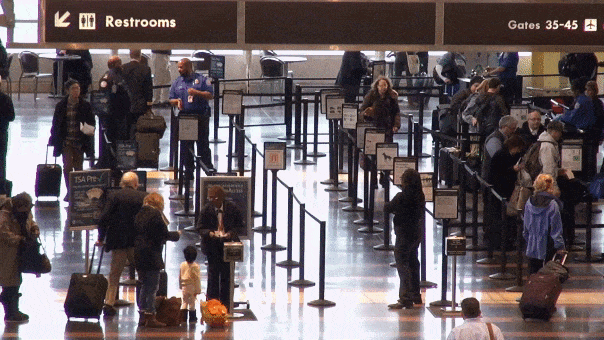Murphy’s Law: Anything that can go wrong will go wrong. As a regular traveler, and one with the last name Murphy, I’m quite familiar with travel interruptions, missed connections, and most recently, hurricanes.
The Hawaiian Islands just avoided a potential disaster when two hurricanes, coming back to back, skirted the islands. There were days of preparations and warnings as the local officials stepped up and prepared for the worst, and in turn, saw things turn out for the best. The Aloha Spirit was alive and well as visitors were kept informed and updated on all of the steps being taken to keep them safe and comfortable. I should know, I was on location in Hawaii leading up to, and through, this period.
Disasters can take on many different faces and weather is only one example. Others include missing a cruise departure, a experiencing a medical emergency or a banging up rental car. Since you never know what to expect, expect the unexpected and be prepared whenever you travel. Here are some tips for handling a vacation disaster.
1. Buy Travel Insurance
Insurance is the one thing you hope you won’t need when you travel. It’s also the first thing you think about when things go awry. Spend the few extra dollars to insure your trip and protect your travel investment. Most importantly, speak to a knowledgeable provider to understand the fine print of what is actually covered. Check out Medical Evacuation Coverage that will fly you out to your home or an accredited hospital in the event of a medical emergency.
2. Download The App
The Weather Channel’s app provides “push” alerts and warnings whenever bad weather is in your area. Flash flood potential? You’ll hear that loud beep and feel that buzz in your pocket, keeping you alert and informed.
3. Listen to Public Officials
The Hawaii Tourism Authority did a great job of keeping the public informed with timely email updates on the path of the storms and what to expect. Most local governments have similar alert systems. Sign up for these and read them when on location.
4. Book Your Air With Your Cruise
When taking a cruise out of a port that you fly to, book your air with that particular cruise line. They will be responsible for getting you to your ship should you miss your departure due to an airline delay. Better yet, head out a day early and enjoy a pre-cruise stay at a nearby resort.
5. Hold off on that Cancellation
When you see bad weather approaching, don’t fall for the media hype and cancel that trip. Read and understand that travel insurance policy you bought figure out when you will actually have to make the decision to go or cancel. Follow the path of that particular storm and be ready to take your trip. You just might have that beautiful beach all to yourself as others reflexively cancel.
6. Follow Your Airline on Social Media
Airlines and other travel industry suppliers will post updates on social media before they are seen in general media outlets. Follow them on Twitter and Facebook to stay abreast of changes in their cancellation and rebooking policies in the event of a disruption to travel.
7. Make Sure Your Rental is Covered
Check your personal car insurance policy to see if you are covered when you rent. Also look at your credit card policy when it comes to rental car coverage. One way or the other, make sure you are covered for both liability and collision.
8. Book with a Travel Agent
Like insurance, you might not realize you need one until something goes wrong and you wish you had one. These advisors work to re-route, re-book and get you home when things go wrong, saving you hours waiting on hold if you booked it yourself.
More From TravelPulse
The Word From Hawaii: Weather Delays Let Us Enjoy Paradise








































